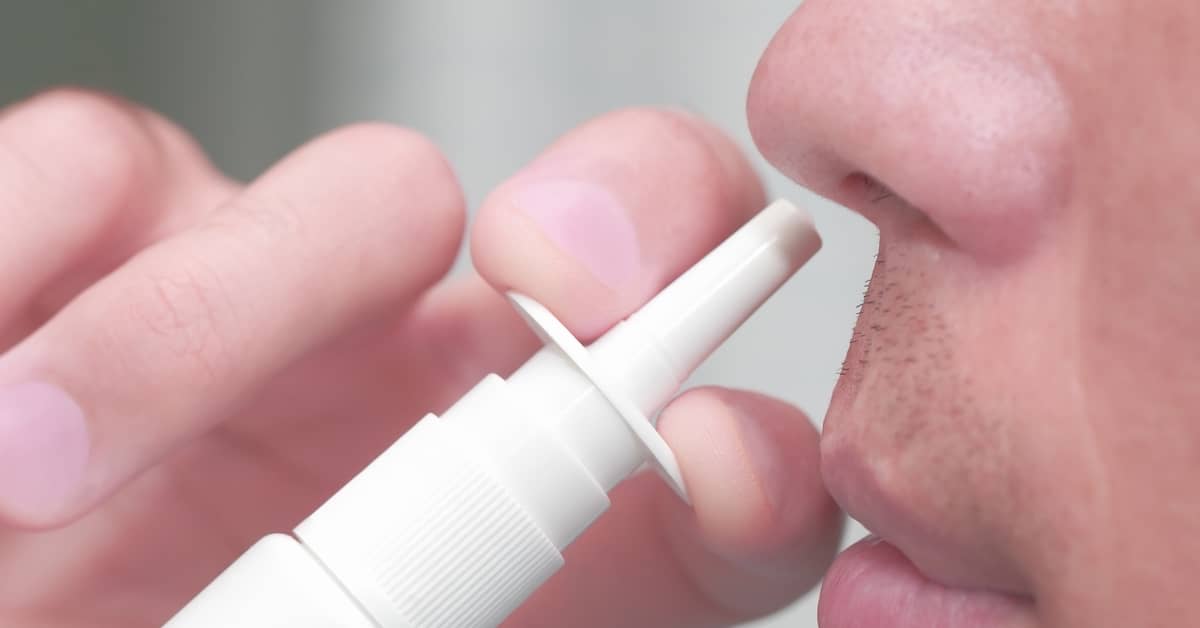
Insulin Improved Memory in This Group
Researchers at Wake Forest Baptist Medical Center conducted a test involving 60 people who had memory problems that had not yet become severe (technically they were classified as mild cognitive impairment or mild to moderate Alzheimer’s). The scientists found that three weeks of inhaling a nasal spray of insulin significantly improved short term memory and increased retention and processing of visual and verbal information.2 The researchers in this case used a type of man-made insulin called insulin detemir. This type of insulin produces more prolonged effects than what the researchers call "regular" insulin. I have my doubts about synthetic insulin vs. the natural molecule – but that’s another article. In this study, they found that the nasal insulin did not lead to major side effects or reactions. The Wake Forest scientists also found that people carrying the APOE-e4 gene – which increases your risk of Alzheimer’s – generally showed greater memory improvement than did people who were not born with this trouble-making gene. But now a bit of bad news: In their next study, when the Wake Forest folks expanded their testing of nasal insulin to about 290 people across several states, they ran into some serious problems that complicated their findings.3Does the Sprayer Matter?
First off, the device they were originally using to spray insulin into people’s noses was no longer available. Then the new devices (made by the same company) started malfunctioning. So, in the midst of the rollout of the new study, they switched to another, more reliable (they hoped) sprayer made by a different firm. The final results of the second study did not show that insulin helped. But the researchers are now trying to figure out if the nasal devices they used to complete the study didn’t work correctly either. If and when they straighten out this snafu and have some dependable results, I’ll let you know. But, meanwhile, I’ve located another study that reveals an important factor that might be causing the problems seen in this research.Complicating Factor
According to researchers in Switzerland, when you test the effects of insulin, you have to take into account the time of day that people receive it. The Wake Forest scientists didn’t do as far as I can tell. This Swiss study demonstrates that our inner circadian rhythms – daily fluctuations in how cells function – can change insulin response and sensitivity. In these tests, the scientists found that not only does insulin sensitivity go up and down depending on the time of day, but on top of that, different organs and muscles operate on different circadian clocks. While some organs might be especially sensitive in the morning, others can experience heightened sensitivity in the afternoon.4 This doesn’t surprise me. During the night our melatonin levels fall and reach their nadir in the morning. Meanwhile the other circadian hormone, cortisol, is at a peak fist thing in the morning and falls during the day, while melatonin builds up. Cortisol is the waking-time, energizing hormone while melatonin helps you sleep, and reaches peak levels at night just before bedtime. And the levels of these hormones is all a function of the light or dark. The researchers argue that their lab tests show that insulin responses are likewise linked to changes in the light around us. The rhythms of day and night – sunlight during the day and darkness at night – promote healthy patterns of insulin secretion and sensitivity.Messing Up Your Hormone Cycles
The widespread habit of staying up late at night and staring at cellphones, computer screens and TVs is playing havoc with people’s insulin sensitivity and metabolism. (Not mine, I go to bed at a reasonable hour, in a room that’s completely dark.) The havoc created by the bad habits also takes place in our brain cells. The Swiss scientists point out that when light hits the neurons in our eyes, those nerve cells transmit signals to the brain that regulate the brain’s internal clocks and, at the same time, the brain sends out signals to other cellular time-keepers in all of our organs. As a result, the Swiss researchers say that giving insulin to people at different times of the day will yield different results. So it’s possible that the latest tests on the nasal use of insulin to treat memory problems have failed because researchers didn’t take into account what time of day the insulin was given. (Again, I don’t know for sure whether they did or not.) Until all of these factors get sorted out, I would offer two tips that may help your brain work better and keep your circadian rhythms on track. . .- Limit your light exposure late at night. Bright light at night could possibly alter your neurons’ insulin sensitivity.
